Review: Oura Ring, The One to Rule Them All?
Collecting health data to help your training is not a new phenomenon. Since Polar launched the first consumer heart rate monitor in the early 1980s it has become endemic among almost all professional athletes. In the beginning, athletes simply recorded their heart rates while training to understand how hard they were working, but in recent years the focus has widened collecting data away from the bike to understand how the body responds to training and how it recovers. As the technology advanced, further measures like HRV, the minute differences between each heartbeat, became possible to measure with consumer tech and sports scientists began to research what this long-used medical marker can tell us about our performance and condition. Today there are a few options on the market that record a range of metrics with the goal of optimising your performance and/or health, and the Oura ring is at the forefront of the current generation of advanced health-focused wearables.
Packed into the Oura ring's tiny titanium frame is an accelerometer, gyroscope, thermometer and an infrared, optical heart rate sensor. Not bad for something that weighs just 4-6g (claimed) and slips onto your finger. Using that array of sensors it measures sleep quality, sleep phases, pulse rate, HRV, skin temperature, movement/activity and respiratory rate through the Oura app. It extrapolates that information to give you daily updates on your condition, the main indicator being a daily readiness score based on a synthesis across all of the data fields. Battery life on the ring is extremely impressive - you can get 5-7 days continuous operation from a single charge (that goes down if you keep the Bluetooth connection active) and a full charge takes just 80 minutes.
Oura Ring Details
• 5-7 days battery life w/ 6 weeks memory
• Waterproof
• Titanium frame
• Accelerometer, gyroscope, body temperature sensor, PPG pulse sensors, Bluetooth LE
• Designs: Profile, Balance
• Colors: Silver, black, stealth, gold diamond
• Weight: 4-6 grams (depending on size)
• MSRP: $299 USD / €314
• www.ouraring.com
• 5-7 days battery life w/ 6 weeks memory
• Waterproof
• Titanium frame
• Accelerometer, gyroscope, body temperature sensor, PPG pulse sensors, Bluetooth LE
• Designs: Profile, Balance
• Colors: Silver, black, stealth, gold diamond
• Weight: 4-6 grams (depending on size)
• MSRP: $299 USD / €314
• www.ouraring.com
The ring itself starts at $299 USD for the the standard version and charger. The standard ring is available in two profiles - Balance or Heritage - and comes in silver or black. If you are feeling fancy, you can upgrade the Heritage version to a stealth or gold version finish for a little over $100 more and the Balance has a diamond-studded option at $999. It is worth noting that the tech remains the same throughout the range - the price increases are for fancier finishes and precious metals. Unlike its main competitor, the Whoop strap, there is no monthly subscription or further cost and the app is free to use. This means that over a year the standard Oura ring comes out a little cheaper than the Whoop strap, which is $30 per month.
Getting Started
Before you purchase an Oura ring they send you a free-of-charge fitting kit with plastic rings to check your finger size. I have fairly average-sized hands (I'm usually a 9 for gloves) and the size 9 ring was the closest for me. With hindsight I wonder if I could have done with a slightly smaller ring as fit on the finger is important to get good readings. I appear to have relatively big knuckles and thin fingers - so although the 9 was a little loose on my finger I could not get the 8 over the knuckle, and if I could I almost certainly would have not been able to get it off again, which would make charging impossible.
Out of the box you need to pair the ring to the app. For the first use this needs to be done with the charging stand and app, once you have made the connection and charged the ring, simply slip it on your finger and let it get on with working. Reading online reviews there seems to be some hint that it is better to wear the ring on your non-dominant hand, although I was not aware of this at the time. My wife does not mind what wedding ring I wear, providing I wear one on my left ring finger, so I chose that as it is the only finger I am used to have a ring on and I cannot wear a ring on my right ring finger after crushing it under a concrete block as a teenager.
You will immediately have activity data and will begin receiving scores after your first night sleeping with the ring on. When it is active you can quickly check in on your progress through the day via the app. Oura say that the ring needs a little time at first to get to know you, they say a couple of weeks to set up baselines, then it will continuously learn and improve the longer you wear the ring. While it establishes your baselines, your scores are based on a proxy with similar metrics to you.
The Oura on its charging base. You can also log onto Oura's website to get a more detailed breakdown of your stats than is available in the app.
The main choice to make with the app is do you allow notifications? If you do allow them it will send you updates about your progress on the days activity goal, inactivity, bedtime and battery levels for the ring. If you do not want to receive these updates you can either choose to disallow notifications or place the ring in airplane mode which disables the ring's connectivity and you need to place the ring in the charger to re-establish a connection with the app (this is also worth keeping in mind if you are visiting anywhere you are concerned for your digital security).
The most complicated area with setup is if you wish to pull in data from other sources. For instance, if you are out riding the ring may register occasional heart rate readings and the movement, but it is nowhere near as in depth as you would record with a cycling computer, which then means a large part of your daily health information is not recorded and cannot be taken into account when the app is putting together your scores. To access this data becomes complicated because Oura will not pull data directly from third-party apps such as Strava or Garmin Connect. To import data from these sources on an iPhone you need to first connect your activity app to Apple Health, then connect the Oura app to Apple Health and get all the read/write permissions in order to share the sports data from your tracking app to Oura via Apple Health. With this many steps in the process it stood out in the setup process as being particularly tricky to get working correctly, especially because the rest of the setup ran so smoothly. The ring was only tested with an iPhone, but the Oura website states that you can set up similar links with Android to bring in outside data.
Using the Ring
The idea with the Oura ring is that you check in each morning to see how you are doing. On the main screen you are presented with your readiness score in the home page with brief summaries of three areas: readiness, sleep and activity. You can then follow each of these areas into a separate tab in the app to get a more detailed breakdown of the contributing factors. Readiness is calculated based on resting heart rate, HRV, respiratory rate and body temperature. It is worth mentioning here that the temperature reading is based on a skin measurement and should not be considered useful for medical diagnosis - I had COVID while wearing the ring and ran a fever for several days, but this was not picked up by the ring.
Oura claim that their tiny device has 99.9% correlation to a medical ECG device for heart rate and 98.4% for HRV, although there is little information about sampling rates and the resting heart rate consistently came in higher than on the Garmin HRM strap I use to take a manual HRV reading each morning. I have been taking manual HRV readings with the iThlete app using a Garmin/Polar strap since 2016, so I have a good background and have established a reasonable correlation between the scores I get on that app and how my body is recovering or responding. My readiness score and HRV readings from the Oura app did not correlate well with my manual readings and often how I felt. With the discrepancies like this between the two platforms it was a case of choosing which one to follow for a given day as they frequently told me quite different things. That said, maybe this is was an unfair situation for the Oura ring as I only used it for three months, compared to five years with iThlete. If I had stopped iThlete and focused on Oura the situation maybe it would have improved but as the ring was only with me to test I did not want to abandon my long-term health tracking.
Logging onto the app you are given your morning readiness score that pulls information from everything the Oura ring record. You can then go into one of the three sub-categories, sleep, readiness and activity, for a closer look at the area.
The sleep section looks at your total sleep time, time in bed, sleep efficiency (ie. quality) and resting heart rate. The Oura calculates your sleeping based on movement and heart rate, a technique called actigraphy, that has in-built limitations in differentiating between sleep phases. As part of the sleep information the app calculates what it thinks would be your ideal bedtime based on your recent sleep, although it continually recommended I head to bed at 8pm, which is early even for me. It is with the sleep score where I had my biggest issue with the Oura ring - it consistently under-recorded my sleep. On many nights it would register me going to bed at the correct time, but then decide that I was awake for up to an hour and a half after I was out cold. Talking to Oura technical support staff they tracked this down to my heartrate being consistently elevated in the evening and dropping slowly over the course of the night. That (relatively) high heart rate meant the sensor gave me low sleep efficiency and latency scores, reducing my sleep score and dragging my overall readiness score below my perceived levels and the levels extrapolated from my manual HRV reading. Reading online I have seen people suggest that the some other devices use an electrodermal sensor to improve accuracy on sleep tracking, but at present that is not something Oura offer.
Finally there is activity which is pretty self-explanatory as it is not so different from a $25 Fitbit-alike or the motion sensor built into your smartphone, counting steps and periods of inactivity. This was surprisingly valuable to me as the fact the Oura is a ring meant I had it on 24/7 while I would habitually leave my phone elsewhere and take my Garmin watch off when I was not training. That said, I did not turn on notifications for the movement updates as I have moral issues with about being told when to move by a gadget.
Limitations
From what I can work out, I did not have a typical experience with the Oura ring. Talking to a friend who used one for several years, he reported a far higher quality of data, which lead me to scrutinise the cause of my problems. I am open to the possibility that I have weird physiology - I have a bony lump in the base of my wedding ring finger, my resting pulse rate is very low (I have clocked it around 35bpm some mornings) and maybe my knuckle to finger width ratio means I cannot get a ring tight enough to the skin to get good readings. Unfortunately with my mangled right ring finger I could not simply swap the ring to the other hand for a comparison. In some online reviews testers have talked about differences between units but when I raised my concerns with Oura I was not offered an alternate test unit to rule out that possibility. After my time with the ring I discovered that it is recommended you take the ring off for hard physical work where the ring could be damaged such as trail building or hitting the gym. There was no change in the data to suggest this was the case, but as I could not rule it out I do not want to omit that possibility here.
Pros
+ A lot of tech for something so small and discrete
+ Great battery life
+ One-off cost with no subscription
Cons
- Data quality not as high as expected
- Clunky integration with other apps for activity tracking
- Relatively delicate
Pinkbike's Take
Author Info:
Must Read This Week
Sign Up for the Pinkbike Newsletter - All the Biggest, Most Interesting Stories in your Inbox
PB Newsletter Signup
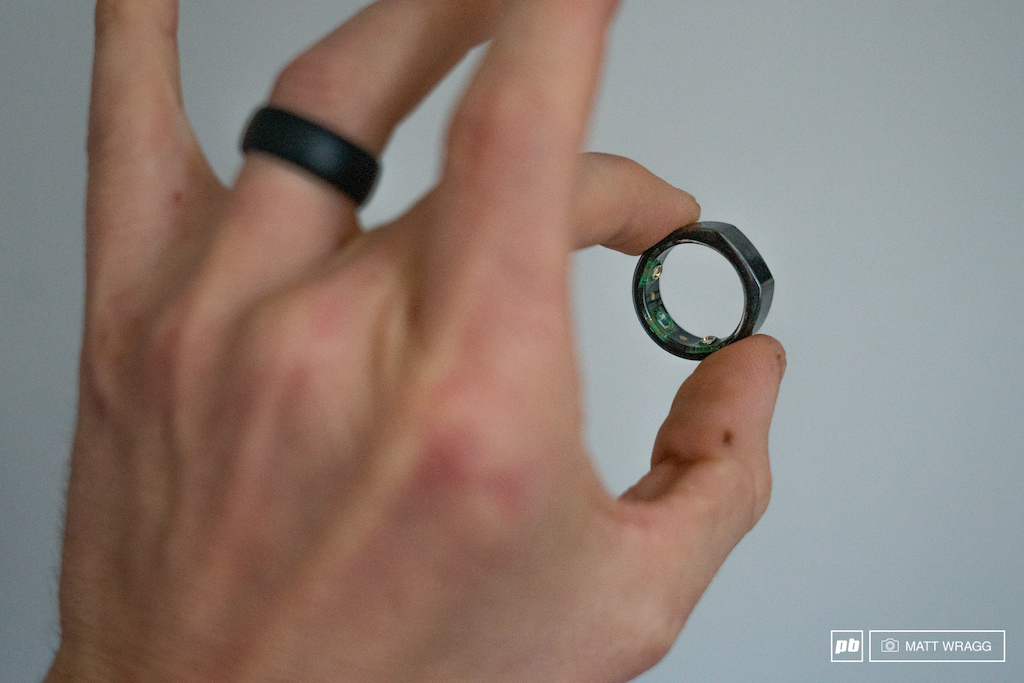
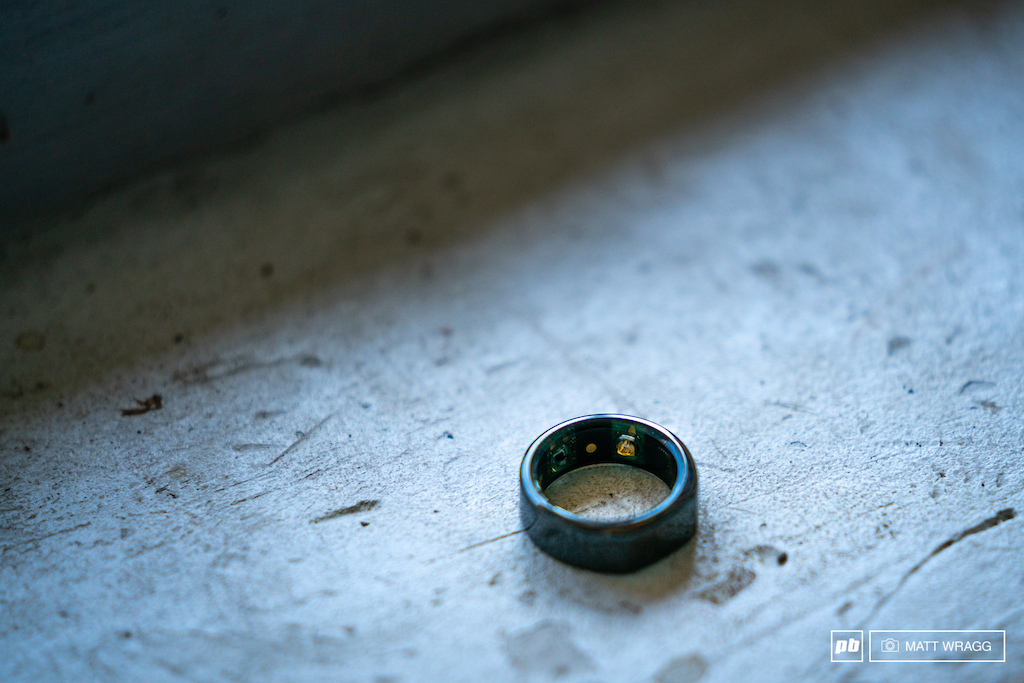
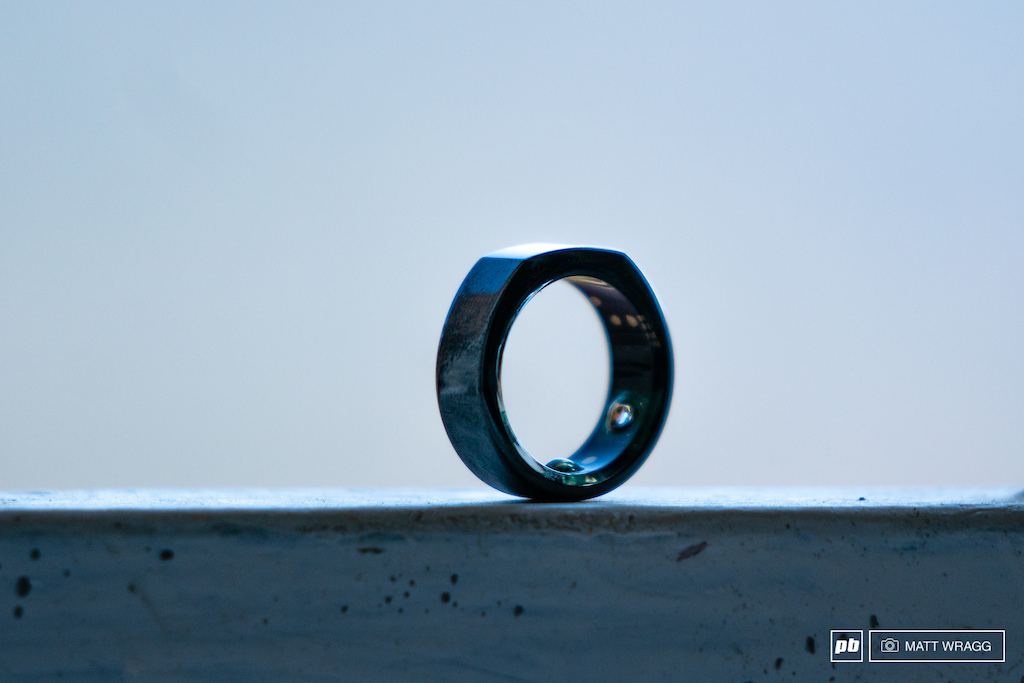
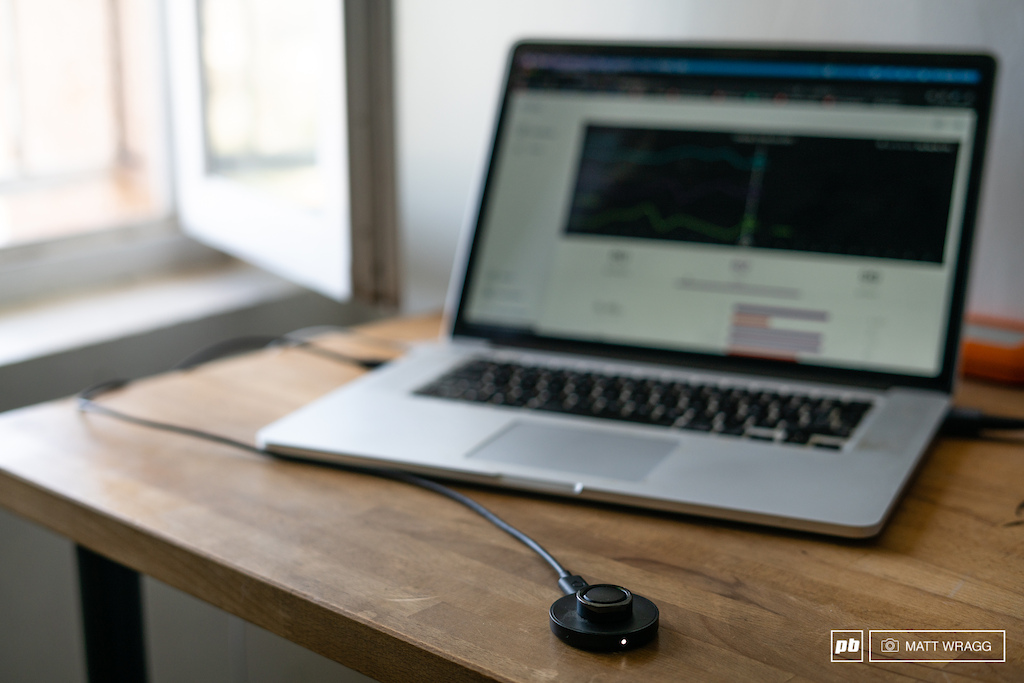
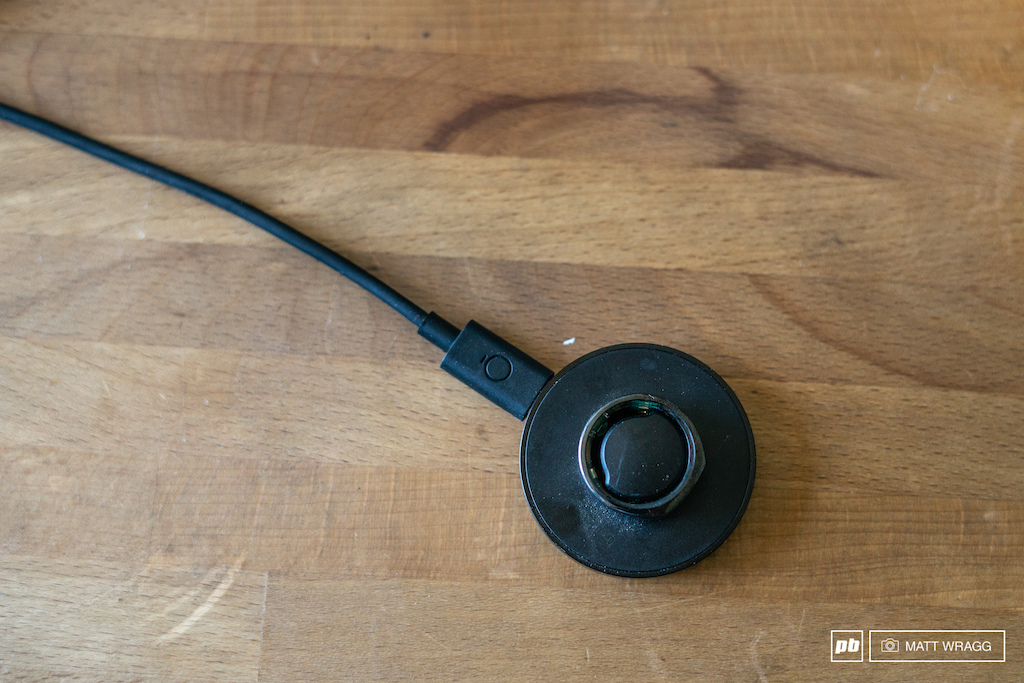
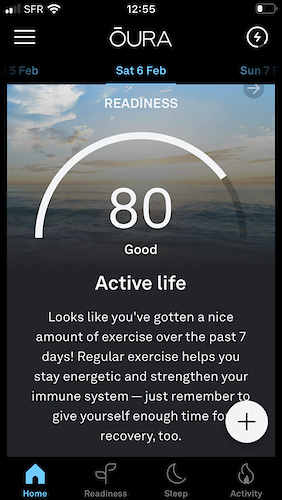
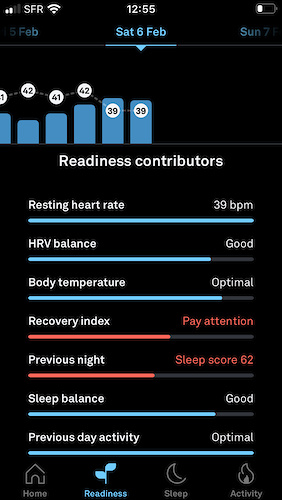

 Member since Oct 29, 2006
Member since Oct 29, 2006
He enthusiastically said "Hell no, that data is trash. You can't come to any meaningful conclusions from app-based sleep data gadgets". You need a controlled environment, these gadgets should only serve to confirm what you already know.
The same goes for consumer grade sleep tracking devices. It's not the right tool for monitoring stages of NREM sleep or the occurrence of sleep spindles (nor does it pretend to be, that kind of data isn't even available in the apps). It is however useful for logging more general data, which can be just as useful, if you aren't trying to diagnose sleep disorders or collect data for research purposes.
Btw, I would recommend anyone interested in understanding/optimizing their sleep to read "Why We Sleep" by Matthew Walker. One of the most interesting and useful books I have read to date.
As soon as I heard about insurance companies offering better pricing for sharing health data I knew these devices a would eventually cost us more than they provide in utility.
Because you won’t get a deal for sharing data, those who don’t share will ultimately pay more “because a reasonable person with nothing to hide would share the data so if you don’t share you must be hiding high risk health factors”. Just wait.
One to approach I guess. It would be interesting to see what the real world Data would count for the “everyday” person on a bike?
I don’t think it’s an unusual number for an enthusiastic hobby-athlete.
Well boys, I had to have a heart test done, and lets say that night my wife and I had some fun. the doctor was worried about my heart rate at 12am, It was a long talk...
I did not become obsessed with the data, but I can see all of these trackers playing a psychological game with many people - am I really sleeping enough? Why is this metric so low when 'experts' say it shouldn't be?
I think we are outsourcing way too much of our well-being to data, research and experts. Devices can help to drive meaningful change, but they are only a small part of the equation
I have to say I’ve had none of the data issues that Matt reports, and tbh it seems to be more accurate than my Garmin on all things HR. The sleep tracker has been fun (my wife and I trying to out sleep each other, or whoever gets the best score has to deal with the kids in the morning.) I’ve been getting alerts as apparently I’m consistently falling asleep too fast, usually in 2-3 minutes which apparently is a sign of over tiredness.
Anyway, having used it as a fitness / health tracker I do think it seems to correlate well with my general fitness / wellness. E.g. The resting HR rate has gradually been falling and the HRV increasing as I’ve been ramping up the cardio. I think it’s good and where it really has an advantage over a garmin is that except for the hour a week on charge I genuinely wear it 24/7.
Would I buy one with my own money... probably not. £300 is a lot and I’d rather spend that on a garmin tbh. But if I was super serious about training for a big event then maybe...
HR wise, it has been far more accurate than my chest strap HRM (wahoo brand) which baffled me.
Fitness tracking wise, its good at noting my workouts but gets messy on the export to strava part, where if I record via GPS or on the trainer (zwift) I end up with duplicate workouts.
While the 'recovery score' is sometimes accurate, some of my best days have been when I've been given a low score. There doesn't seem to be any really strong correlation between recovery score and personal energy level, and while Whoop CLAIMS to track things like mental stress and fatigue, I have found that my mental stress and fatigue are not at all reflected in my scores.
How easy is it to cut off in the event of a crash? If you break a finger wearing a Ti ring there is a good chance that if you can't get it off before swelling sets in then you may lose the finger as Ti is so hard to cut. My paramedic mates strongly advise against wearing Ti rings at any time just for this reason.
I tend to believe that people actually losing fingers because they wear titanium rings is an urban myth.
moral is: don't wear rings around machinery...or maybe don't get married.. i dunno. he said it all hurt a lot.
With regards the tungsten rings I'm sure there's a video somewhere of someone using a nut splitter and with just a little pressure the ring just cracks and falls off in 4 pieces without so much as a mark on the skin.
15 years later, I wear a gold ring. I know I can cut it off with my Knipex cutters if necessary. Why risk it with something harder?
I must remember this one next time I sleep in and am late for work
Didn't Jimmy Fallon experience sth like that?
Does it count for bonus sleep points when passing out after a rowdy club session?... Can it retrace my steps to find my lost keys. Does it have gyro tech when you wear as a tally-ring and do the windmill?
Oh yes sir indeed
One of the things I can figure out with Whoop and Oura is why they don't track overall fitness. Their data is way more complete than Strava/Garmin/Training Peaks/etc yet they only provide a recovery score.
Surprised he didn't mention the 3 'nubs' that house the light emitters/sensors; they're placed on the palm side, where your hand is softer and more fleshy- I have to rotate the ring 180 so I don't get weird callouses and hand pain while riding.
It's also funny that certain activities show up as 'high intensity' in the app but are really pretty tame, and that a full day of mountain biking just shows as a few lazy spikes.
If you're into the concept of full day metrics, and willing to stick it out for the 3-4 months, the data truly becomes actionable.
I share your lack of enthusiasm regarding things on the wrist, that said I've found the Apple Watch to be hands down the best option. Accuracy seems to be best, BT HR straps can be paired if needed, and if you are already in the Apple ecosystem, it's a pretty slick interface, acting as a standalone phone. The only downside is a relative lack of battery life.
I never considered the Oura, as I've been a silicone ring convert for about a decade, and there is zero chance I would tolerate a metal ring at this point. For me, way more intrusive than a watch.
Strava
HRM
Fitness watch
All now resigned to the kitchen drawer where all the old mobile phones and chargers live.
Which is flagged as spam.
Add the “a” in the URL please.
Ring: You've turned off your notifications... that's why.
ABBA was prescient. Who knew?
Also, could have a heart block. reads 35 but you could be missing a bunch of beats.
Enlarged heart from endurance training?
@mattwragg should see a doctor.
Now it is set at 50 minimum and it is hard to sleep as it feels like it is racing.
I was in the middle of the Trailforks 30 day challenge and one day felt so dizzy driving home from work(previous night started ride before midnight and finished after midnight to get two days of riding in) and it would not go away.
Went to ER and they would not let me leave, was serious enough they bumped me to the front of the line surgery next morning.
They said i was very close to falling asleep and never waking up.
Get your hearts checked folks.
There was a predisposition that I would have an issue(they had warned me 10 years earlier it was coming) however, my doctor blamed it on abusing my heart. Too many 24 hour races, marathons, excessive training etc....
you can leave it on when you hit the gym or go out trail building and the battery lasts for ages. 50k run and still enough battery life for an other 2-3 weeks.